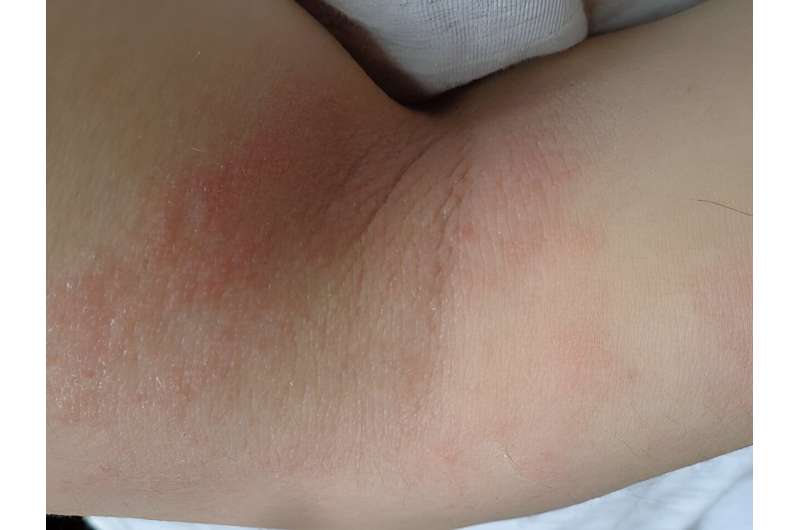This article has been reviewed according to Science X's editorial process and policies. Editors have highlighted the following attributes while ensuring the content's credibility:
fact-checked
proofread
Atopic dermatitis associated with schizophrenia, schizoaffective disorder

Atopic dermatitis (AD) is a chronic, inflammatory skin disorder that has well-established associations with depression and anxiety. A new Yale School of Medicine study, published in Archives of Dermatological Research, finds AD is also associated with increased risk for schizophrenia and shizoaffective disorder.
Schizophrenia is a psychotic disorder characterized by delusions, hallucinations and/or disorganized behavior with decline in functional status, while schizoaffective disorder is defined by symptoms of schizophrenia in addition to manic or depressive mood symptoms.
Researchers calculated odds ratios using electronic health records from 240,635 patients and found participants with AD were more likely to have schizophrenia (2.0% vs. 1.1%, P <� 0.001) or schizoaffective disorder (1.8% vs. 0.5%, P <� 0.001).
Researchers say AD was significantly associated with schizophrenia and schizoaffective disorder even after adjusting for demographics and comorbidities.
More information: Ryan Fan et al, Association of atopic dermatitis with schizophrenia and schizoaffective disorder, Archives of Dermatological Research (2023). DOI: 10.1007/s00403-023-02674-7


















